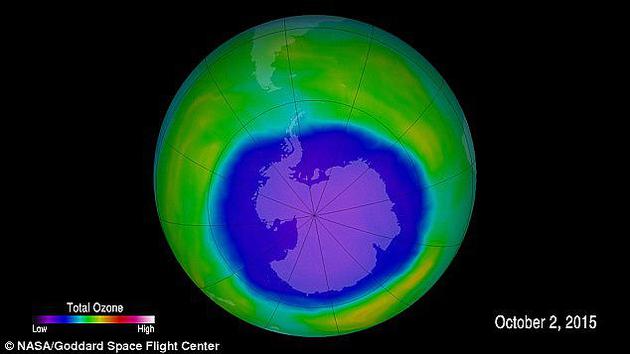New research suggests coffee increases life expectancy!
Follow the caf é (Wechat official account vdailycom) and found that Beautiful Cafe opened a small shop of its own.
The benefits of drinking coffee
Previous USC studies have shown that coffee consumption is associated with a reduced risk of several types of cancer, such as diabetes, liver disease, Parkinson's disease, type 2 diabetes and other chronic diseases.
Setiawan also drinks one or two cups of coffee a day. He pointed out that the positive impact of drinking coffee is far-reaching because of the large number of people who enjoy or rely on coffee every day.
Setiawan stressed: "Coffee contains a large number of antioxidants and phenolic compounds, which play an important role in cancer prevention. Although the study does not show exact causality or indicate which chemicals in coffee may have this "effect", it is clear that drinking coffee can be considered a very healthy lifestyle. "

According to the American Coffee Association, about 62 percent of Americans drink coffee every day, an increase of 5 percent over 2016.
As a research institution, USC has scientists from different disciplines working to find a cure for cancer.
Keck Medical School and the USC Comprehensive Cancer Center jointly manage a database called the Los Angeles Cancer Surveillance Program, which provides scientists with cancer data for different populations.
Researchers at the USC Comprehensive Cancer Center found that drinking coffee reduces the risk of colorectal cancer, but long-term consumption of hot coffee or drinks may lead to esophageal cancer.
In addition, last year the World Health Organization announced that drinking coffee can reduce the risk of liver and uterine cancer.
Recently, scientists have found that coffee drinkers seem to live longer. Coffee intake is associated with the risk of death from heart disease, cancer, stroke, diabetes and kidney disease among African-Americans, Latinos and whites.
Compared with those who did not drink coffee, people who drank one cup of coffee a day had a 12% lower mortality rate. For people who drank two to three cups of coffee a day, the death rate was reduced by 18%.
Setiawan, lead author of the study, said: "We are not sure that drinking coffee will prolong your life, but we can confirm that there is a link between coffee drinking and longevity. If you like coffee, please insist; if you don't like coffee, you can have a try. "
The study, published July 11 in the journal Annals of Internal Medicine, was conducted by the University of Hawaii Cancer Center and the Keck School of Medicine.
So far, there is little data on the correlation between coffee consumption and mortality in the United States and elsewhere, the researchers show. This kind of survey is important because lifestyle and disease risk vary widely between races, and the findings of one group may not necessarily apply to others.
Since the association exists in four different races, Setiawan points out that the findings can certainly be applied to other groups.
Research data
In the study, Setiawan and colleagues recruited 185,855 volunteers, including African Americans (17%), native Hawaiians (7%), Japanese Americans (29%), Latinos (22%) and whites (25%). All the volunteers were asked to answer questionnaires about diet, lifestyle, family and personal medical history.
In addition, volunteers were required to truthfully report their coffee intake habits and update them every five years. They also reported whether they drank caffeinated or decaffeinated coffee, with an average follow-up period of 16 years.
Sixteen percent of the participants reported that they did not drink coffee, 31 percent drank one cup a day, 25 percent drank two to three cups a day, and 7 percent drank four or more cups a day. The remaining 21% had irregular coffee intake habits.
Of the 58397 participants in the study, about 31 per cent died. Cardiovascular disease (36%) and cancer (31%) are the main killers.
The data were also adjusted for age, sex, race, smoking habits, education, pre-existing diseases, physical activity and alcohol consumption.
Previous studies by Setiawan have found that coffee reduces the risk of liver cancer and chronic liver disease. Currently, she is studying how coffee is associated with a particular cancer risk.
Important Notice :
前街咖啡 FrontStreet Coffee has moved to new addredd:
FrontStreet Coffee Address: 315,Donghua East Road,GuangZhou
Tel:020 38364473
- Prev

Drinking a lot of decaf coffee is not environmentally friendly?
July 13 news, according to foreign media reports, the latest research by scientists shows that people like to drink low-caffeine coffee may damage the ozone layer. Decaf hot drinks contain a solvent dichloromethane (dichloromethane), which, along with the massive production of dichloromethane, will delay the recovery of the ozone layer in Antarctica for 30 years. Now scientists are calling for better control of dichloromethyl.
- Next

Drinking coffee will help clear the intestines and defecate.
Follow the caf é (Wechat official account vdailycom) found that many people will have a bowel movement after drinking coffee. 1. For some people, coffee may cause the movement of the colon. A small study in 1990 found that 29% of people reported that they would defecate within 30 minutes after drinking coffee.
Related
- The ceremony is full! Starbucks starts to cut the ribbon at a complimentary coffee station?!
- A whole Michelin meal?! Lucky launches the new "Small Butter Apple Crispy Latte"
- Three tips for adjusting espresso on rainy days! Quickly find the right water temperature, powder, and grinding ratio for espresso!
- How much hot water does it take to brew hanging ear coffee? How does it taste best? Can hot water from the water dispenser be used to make ear drip coffee?
- What grade does Jamaica Blue Mountain No. 1 coffee belong to and how to drink it better? What is the highest grade of Blue Mountain coffee for coffee aristocrats?
- What are the flavor characteristics of the world-famous coffee Blue Mountain No. 1 Golden Mantelin? What are the characteristics of deep-roasted bitter coffee?
- Can I make coffee a second time in an Italian hand-brewed mocha pot? Why can't coffee be brewed several times like tea leaves?
- Hand-brewed coffee flows with a knife and a tornado. How to brew it? What is the proportion of grinding water and water temperature divided into?
- What is the difference between Indonesian Sumatra Mantinin coffee and gold Mantinin? How to distinguish between real and fake golden Mantelin coffee?
- What does bypass mean in coffee? Why can hand-brewed coffee and water make it better?

